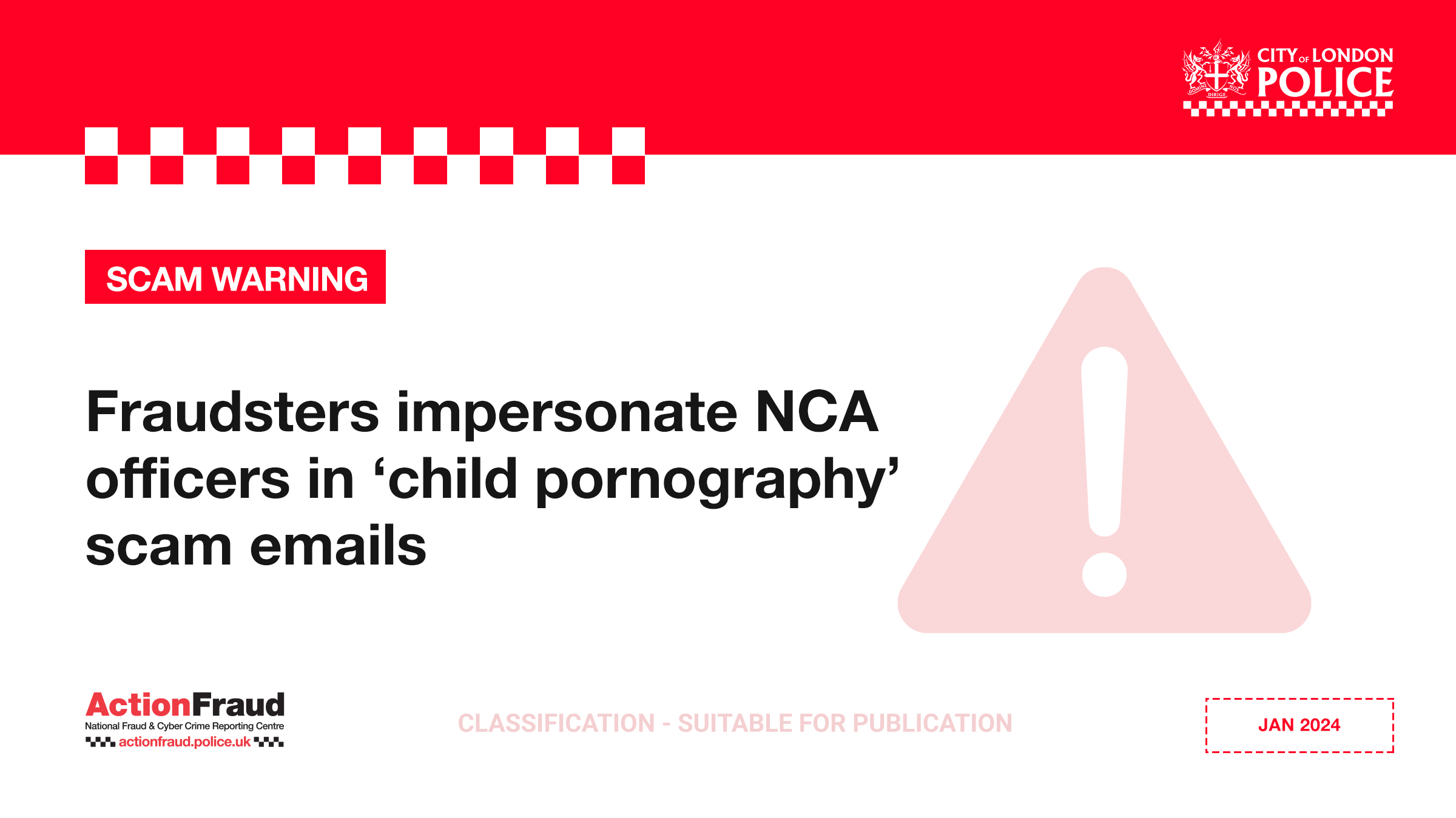Over 9,000 reports received so far in April.

A sextortion phishing scam, first identified by the National Fraud Intelligence Bureau (NFIB) in July 2018, continues to be reported to Action Fraud in high numbers.
So far this month, Action Fraud has received 9,473 reports of this email scam, with 200 reports made in the last week.
The emails contain the victim’s own password in the subject line and demand a payment in Bitcoin to prevent videos of the victim, on their computer visiting adult websites, being shared.
An example email reads;
“It Seems that, XXXXXX, is your password.
I require your complete attention for the upcoming 24 hrs, or I may make sure you that you live out of guilt for the rest of your lifetime.
Hey, you do not know me personally. However I know all the things concerning you. Your present fb contact list, mobile phone contacts along with all the digital activity in your computer from past 176 days.
Which includes, your self pleasure video footage, which brings me to the main motive why I’m composing this particular mail to you.
Well the last time you went to see the porn material websites, my malware ended up being activated inside your computer which ended up documenting a beautiful footage of your self pleasure play by activating your cam. (you got a unquestionably weird taste by the way haha)
I have the full recording. If, perhaps you think I am playing around, simply reply proof and I will be forwarding the particular recording randomly to 8 people you know.”
Head of Action Fraud, Pauline Smith, said:
“Sextortion scams are a type of phishing attack where people are coerced to pay a ransom, normally in Bitcoin. The messages can look particularly convincing because they often include the recipient’s genuine password.
“The criminals sending these emails are ruthless, unscrupulous individuals who don’t care about the impact of their actions on victims. They seek to exploit people’s emotions - shaming and scaring the recipient enough, that they make a payment.
“If you receive an email that threatens you, your family, or your property in any way, and asks you to make a Bitcoin payment, don’t take the bait.”
- Do not reply to the email or click on any links contained within it. Instead, report it to: [email protected] and then delete it.
- Do not be tempted to make the Bitcoin payment. Doing so may encourage the criminal to contact you again for more money.
- If you have made the Bitcoin payment, then report it to your local police force by calling 101.
For more information, visit: actionfraud.police.uk/sextortion



